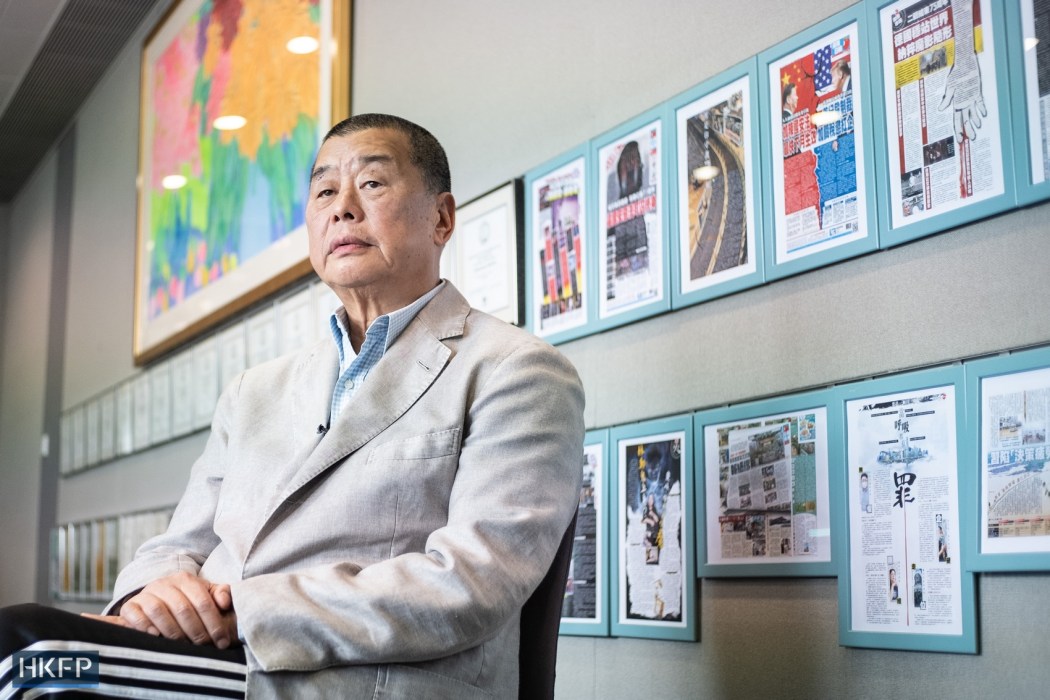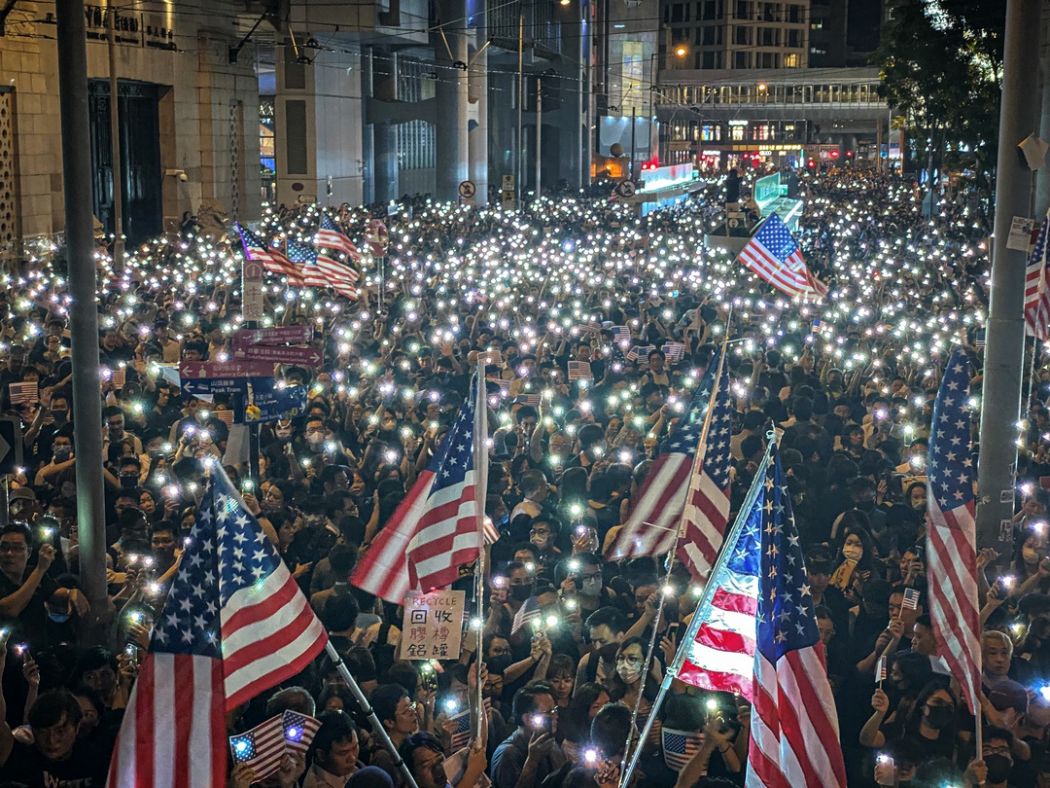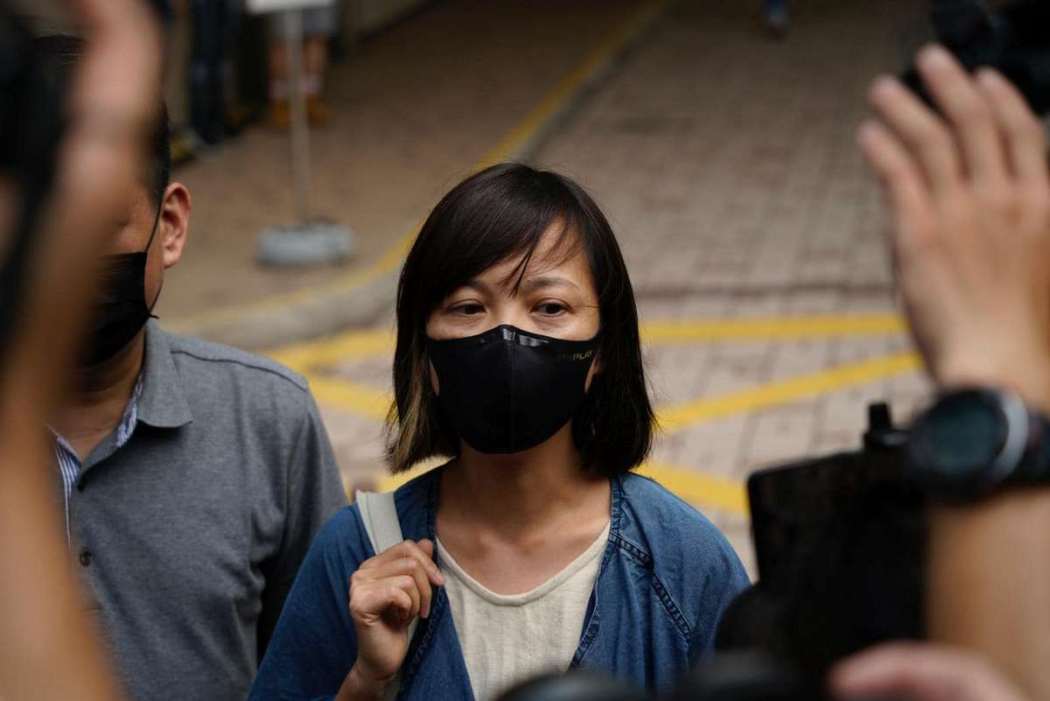Apple Daily founder Jimmy Lai ran a campaign in his pro-democracy paper to rally support from then-US president Donald Trump a month before Hong Kong’s national security law was passed, a former publisher at the paper has told the national security trial against the media tycoon.
The media tycoon went ahead with the lobbying campaign, despite criticism from prominent democrats and Lai’s own colleagues, including former associate publisher Chan Pui-man, who was testifying as an accomplice witness against her boss on Wednesday.

Chan is among six senior Apple Daily employees who pleaded guilty to conspiring to collude with foreign forces in November 2022 and will be sentenced after Lai’s trial.
On Wednesday, Chan told the court that, in the month leading up to the passing of the national security law, Lai was eager to know more about the content of the legislation.
She also told the court that Apple Daily’s coverage was concerned with whether the operations of the news media, as well as the state of rule of law and human rights would be affected. However, Lai did not attend news meetings about how the paper would handle news of the national security law, Chan said.
See also: Hong Kong media mogul Jimmy Lai vowed to take US sanctions bid ‘to the extreme,’ ex-publisher says

Prosecutor Ivan Cheung produced a scanned copy of the print issue of Apple Daily dated May 24, 2020, which featured a front page campaign titled “One Hongkonger, One Letter to SAVE HONG KONG”.
The front page included a letter addressed to “Mr President,” as well as a subtitle that read: “Sign and send a picture to Trump, appeal to the world to support Hong Kong”.
Chan told the court that Lai had the idea for the campaign “all of a sudden,” and was only told about it at noon, May 23, 2020 — hours before the next day’s paper with the letter campaign went to print.
Disagreement from democrats
“I did not quite agree to [running the campaign] at the time. Mr Lai’s idea was to hold the campaign in the name of Apple Daily, but I thought that was inappropriate,” Chan told the court, adding that she expressed her view to Lai and ex-Apple Daily publisher and co-defendant Cheung Kim-hung.
However, Lai appeared to be “insistent” on running the campaign in the paper’s name. Chan said she told Lai he could take out a front-page advertisement, but the founder did not accept her recommendation,.

Lai’s response was that there were others around him who objected to his method, but he insisted, saying that his way would be “more effective,” Chan said. She added that Cheung was not enthusiastic about Lai’s method, either.
“My understanding was that the national security law was about to pass, and Mr Lai was hoping to get Trump’s attention so he could do something to stop the passage of the legislation,” Chan told the court.
The prosecution then produced a screenshot of a post on pro-democracy activist Joshua Wong’s Facebook page. Wong wrote, originally in Chinese: “The problem is that [the campaign] completely fails to meet the criteria for striving for cross-party, that is, bipartisan, support… [T]o explicitly and flagrantly ask Donald Trump to save HK is… really discomforting[.]”
Another text message from Lai was then produced, in which he told Chan he did not agree with Wong. “I know a lot of people don’t agree with this, including Martin, but… we can’t pretend to be careful and clever.”

Lai appeared to be referring to founder of the Democratic Party Martin Lee. Despite the pushback from the democrats, Apple Daily ran the same campaign on May 25 and May 27, but on the inside pages of the paper.
Chan told the court that she heard Mark Simon, Lai’s assistant, was responsible for writing the text portion of the “letters” campaign, to which judge Alex Lee objected: “Hearsay.”
The prosecution then presented to the court a scanned front-page story in a print issue of Apple Daily about a protest against the national security law, titled “10,000 people take to the streets once again to blow the trumpet of anti-authoritarianism.” The protest was held on May 24, 2020, coinciding with the publication of Lai’s letters campaign.

Chan said she did not handle that story, as she was on her day off. Asked whether it was “by design” that Apple Daily ran the campaign on the same day as the protest, Chan told the court that Lai did not say whether the publication date was chosen because protests were expected that day.
Jimmy Lai on Twitter
The court also heard that Chan helped with Lai’s Twitter account. The prosecution presented a transcript of a voice recording sent over WhatsApp on May 23, 2020 from Lai asking Chan to send him a “sentence” every day for his Twitter account.
The prosecution also showed the court a message from Chan telling Lai that the Chinese People’s Political Consultative Conference (CPPCC) — China’s top political advisory body — had issued statements supporting the promulgation of the national security law. Chan added in a subsequent text message: “Hong Kong traitors, sanction list?”
Judge Lee then asked: “So you threw out that idea, and Lai took it?” Chan answered in the affirmative. Responding to further questions from Lee, Chan said that Lai was inviting her to give him ideas that he could then put into a “sentence” as mentioned in the earlier message.

Lai, on the same day, Tweeted: “Should US government put them on the sanction list? #MagnitskyAct”. The Tweet included an image of Hong Kong delegates to the CPPCC holding a red banner with the words: “Support national security legislation, protect one country, two systems”.
Chan said she did not have the hashtag “#MagnitskyAct” in mind when making her suggestion, but confirmed that the pro-democracy paper did indeed cover the sanctions act on multiple occasions.
Lai, who has been detained since December 2020, is one of the most well-known figures to be charged under the national security law, which Beijing imposed in Hong Kong in June 2020 following the previous year’s demonstrations.
Lai’s case is seen globally as a bellwether for the state of press freedom in Hong Kong, although authorities have maintained that the city still enjoys a high degree of media freedoms.
Protests erupted in June 2019 over a since-axed extradition bill. They escalated into sometimes violent displays of dissent against police behaviour, amid calls for democracy and anger over Beijing’s encroachment. Demonstrators demanded an independent probe into police conduct, amnesty for those arrested and a halt to the characterisation of protests as “riots.”
Support HKFP | Policies & Ethics | Error/typo? | Contact Us | Newsletter | Transparency & Annual Report | Apps
Help safeguard press freedom & keep HKFP free for all readers by supporting our team























